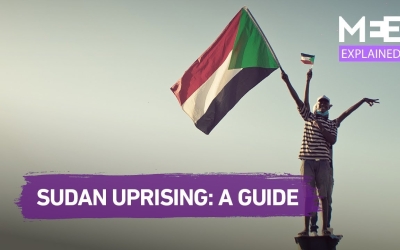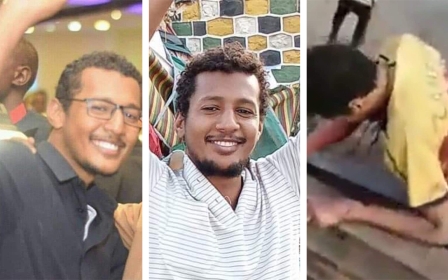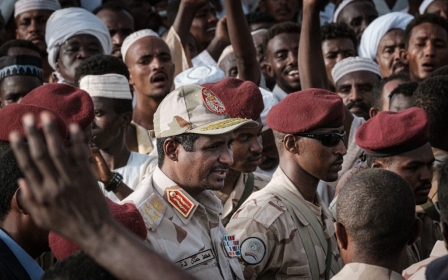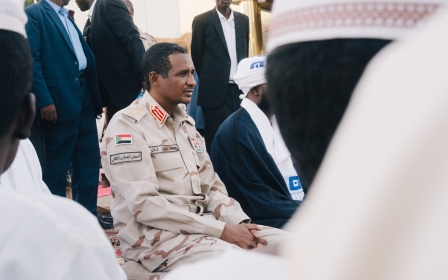Sudanese raise doubts over transition deal agreed with military
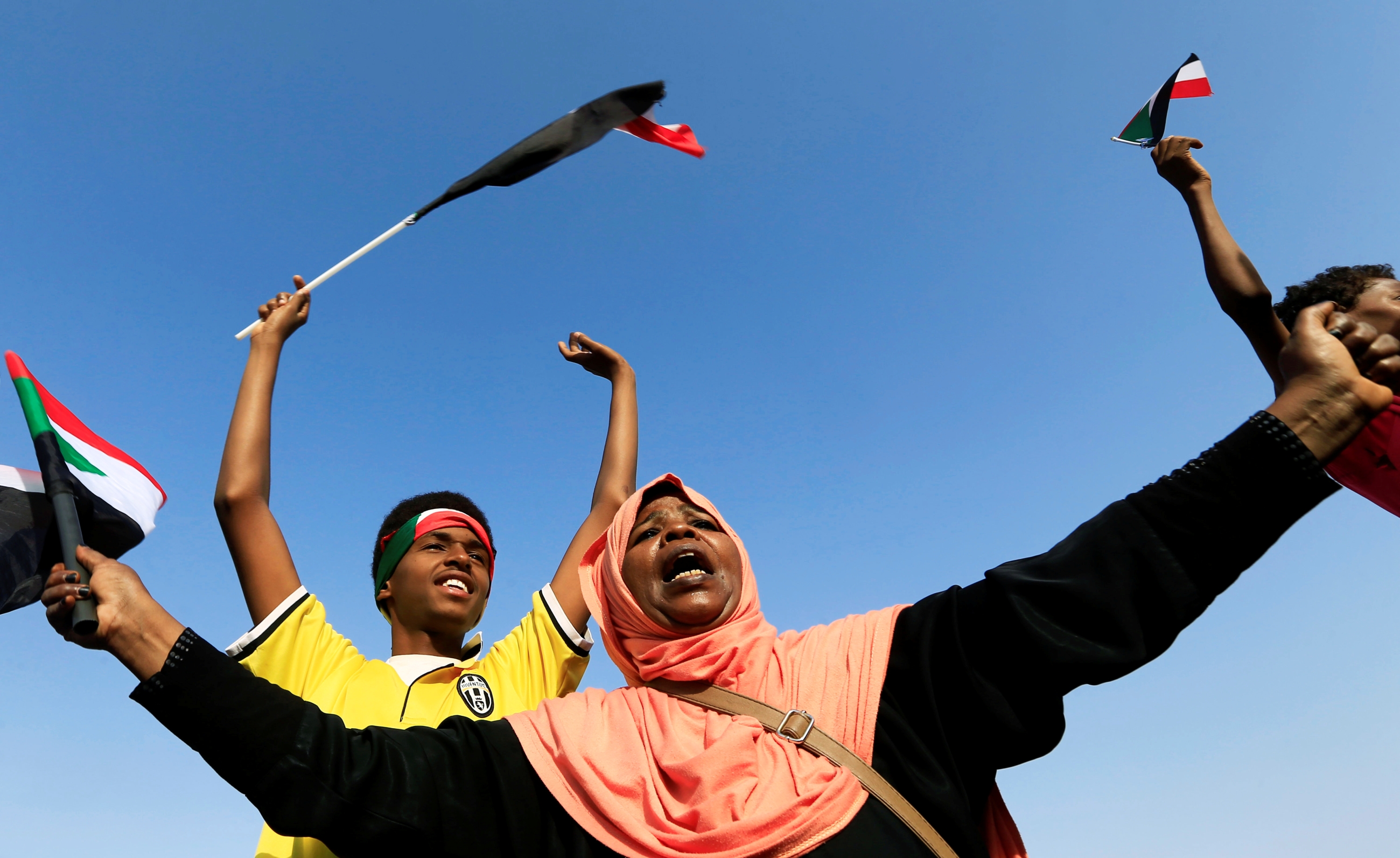
Thousands of Sudanese cautiously celebrated a power-sharing deal struck between the ruling military council and opposition groups on Thursday night, even while others voiced doubt that it will deliver on the demands of their seven-month protest movement.
Nearly 300 people have been killed since protests started in December, according to counts by activists and doctors, and many are questioning whether the deal has matched the sacrifices made by protesters.
According to the terms of the agreement, the country would be governed by a transitional Sovereign Council with five civilians and five military members and an additional independent member.
The rotating leadership of the council will be held by the military for the first 21 months, according to details shared by the opposition Sudanese Professionals Association.
New MEE newsletter: Jerusalem Dispatch
Sign up to get the latest insights and analysis on Israel-Palestine, alongside Turkey Unpacked and other MEE newsletters
Analysts have told Middle East Eye the agreement is fragile and that the opposition signed up to it amid strong pressure from regional and international mediators.
Mistrust
Even while those who celebrated the deal have insisted that the demands made by protesters are met now, others rejected the military's heavy influence over the council, calling for a full civilian government.
Immediately after the deal was announced, protesters took to the streets chanting slogans for "freedom, peace and justice".
"The military council has killed protesters and wants to legitimise itself again through this agreement,” activist Islam Ali told Middle East Eye.
Another activist, Bakri Ali, told MEE that many do not trust the military council, which came close to agreeing deals with the opposition on several occasions since taking power from ousted president Omar al-Bashir in April before back-tracking.
"How can we trust this council? It has given promises and then denied them later on," he said.
Dr Mohammed Naji al-Assam, one of the most recognisable faces of the SPA, celebrated the agreement in the streets, waving a Sudanese flag as supporters chanted and delivered a speech to them.
An activist, who did not want to be named, told MEE that the agreement provides a base for the opposition movement to achieve its demands.
"I do believe that we can't achieve our goals all at once, so this is why I'm with this agreement, so we take the council of ministers and we negotiate again for the other goals," he said.
"[But] the demonstrations shouldn't be stopped during this period as it's the only tool in the hands of the protesters to pressure the military."
Breakthrough
Protesters rejected the military council's assumption of power on 11 April, when Bashir was ousted after months of protests. Shortly afterwards, the SPA and partners under the Forces of Freedom and Change coalition began negotiating with a transitional joint civilian and military authority.
Those talks repeatedly stalled over the make-up of the new ruling body, with the coalition rejecting military leadership of the sovereign council. Discussions were ended altogether on 3 June when Sudanese forces attacked a two-month sit-in outside the military headquarters, killing at least 100 protesters according to doctors.
Ethiopia and the African Union later stepped in as mediators, leading to the resumption of negotiations this week and the announcement, made by African Union mediator Mohamed El Hacen Lebatt on Thursday, that a deal had been agreed and would be finalised within 48 hours.
He also said there would be an independent investigation into the 3 June killing of protesters, one of the demands of the protesters.
"The insistence of the military council to not allow any regional or international participation in the investigation is very suspicious because it means they want to cover up the crimes of the military council and the Rapid Support Forces," said protester Nima Salih, 23, referring to the paramilitary force accused of leading the attack on the sit-in.
"The rights of our martyrs demand bringing their killers to justice, so how can we put our hands on their hands and make a joint government? That is impossible," she said.
A fragile agreement
Many have questioned why the deal has been struck now when it closely resembles offers the opposition previously rejected.
There is a big gap of mistrust between the military and the opposition
- Salah Aldoma, Sudanese political analyst
Sudanese political analyst Salih Amar told MEE that pressure from mediators could have played a role, describing the agreement as fragile and biased towards the military council.
"This agreement is weak and fragile and the two sides look unconvinced by it," said Amar, who suggested it could quickly face setbacks if not developed further.
Salah Aldoma, a political science professor at Omdurman Islamic University, agreed that the deal is weak, saying it did not meet the demands of protesters.
He said mistrust between the two rivals as well as a lack of agreement on a range of important issues will damage the ability of the government to work.
"There is a big gap of mistrust between the military and the opposition and another gap between the agreement and the protesters on the ground," he said.
Middle East Eye delivers independent and unrivalled coverage and analysis of the Middle East, North Africa and beyond. To learn more about republishing this content and the associated fees, please fill out this form. More about MEE can be found here.


